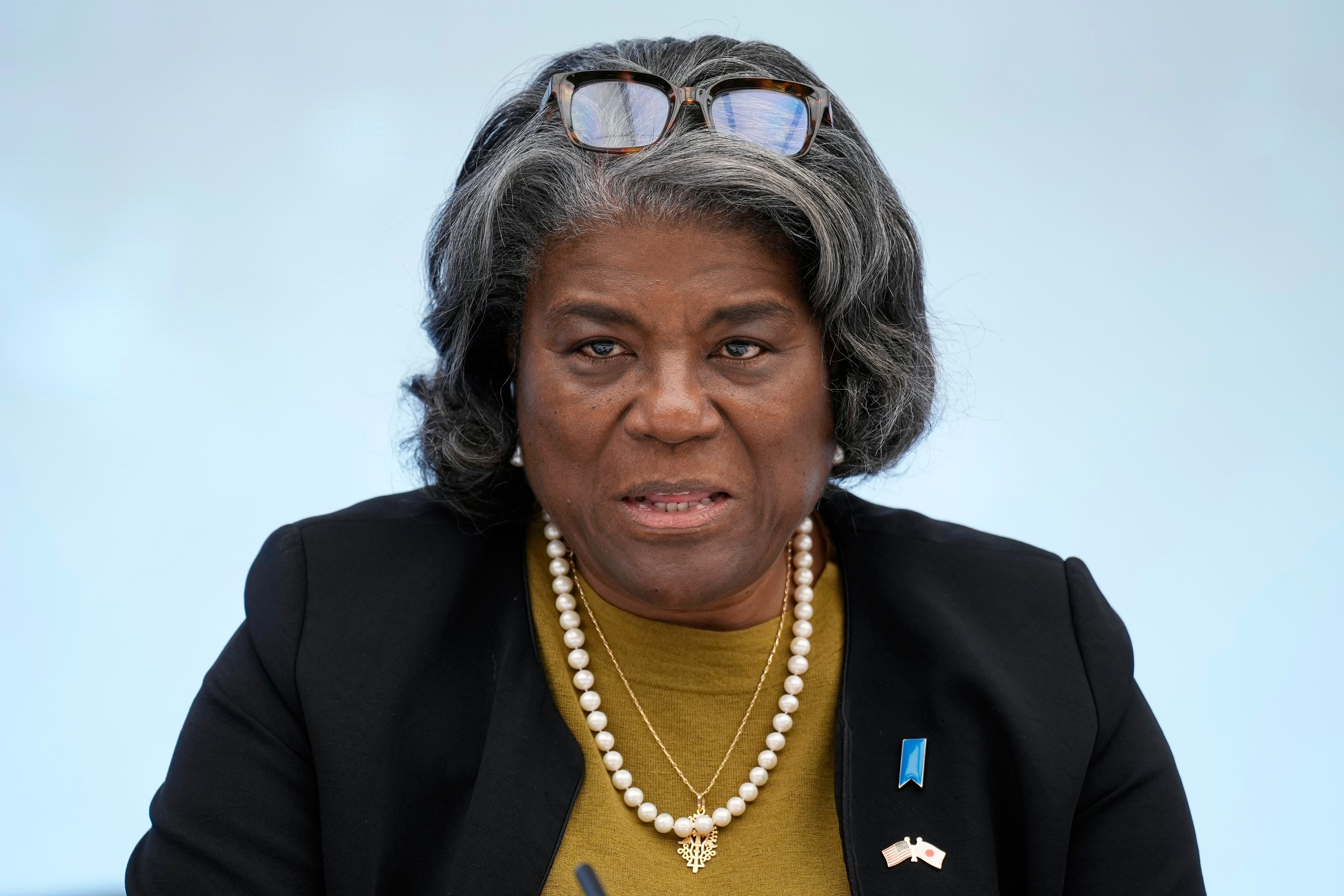Russia likely to veto a UN resolution calling for prevention of nuclear arms race in space
The U.N. Security Council is set to vote on a resolution calling on all nations to prevent a dangerous nuclear arms race in outer space

The U.N. Security Council is set to vote Wednesday on a resolution sponsored by the United States and Japan calling on all nations to prevent a dangerous nuclear arms race in outer space. It is likely to be vetoed by Russia.
The resolution calls on all countries not to develop or deploy weapons of mass destruction, like nuclear arms, in space.
U.S. Ambassador Linda Thomas-Greenfield told a council meeting on March 18 where she announced the resolution that “any placement of nuclear weapons into orbit around the Earth would be unprecedented, dangerous and unacceptable.”
Russia’s deputy U.N. ambassador, Dmitry Polyansky, retorted that Moscow’s initial impression was that the resolution is “yet another propaganda stunt by Washington” and is “very politicized” and “divorced from reality.”
The announcement of the resolution followed White House confirmation in February that Russia has obtained a “troubling” anti-satellite weapon capability, although such a weapon is not operational yet.
Russian President Vladimir Putin declared later that Moscow has no intention of deploying nuclear weapons in space, claiming that the country has only developed space capabilities similar to those of the United States.
The draft resolution says “the prevention of an arms race in outer space would avert a grave danger for international peace and security.”
It urges all countries carrying out activities in exploring and using outer space to comply with international law and the U.N. Charter.
The draft “affirms” that countries that ratified the 1967 Outer Space Treaty must comply with their obligations not to put in orbit around the Earth “any objects” with weapons of mass destruction, or install them “on celestial bodies, or station such weapons in outer space.”
The treaty, ratified by some 114 countries including the United States and Russia, prohibits the deployment of “nuclear weapons or any other kinds of weapons of mass destruction” in orbit or the stationing of “weapons in outer space in any other manner.”
The draft resolution emphasizes “the necessity of further measures, including political commitments and legally binding instruments, with appropriate and effective provisions for verification, to prevent an arms race in outer space in all its aspects.”
It reiterates that the U.N. Conference on Disarmament, based in Geneva, has the primary responsibility to negotiate agreements on preventing an arms race in outer space.
The 65-nation body has achieved few results and has largely devolved into a venue for countries to voice criticism of others’ weapons programs or defend their own. The draft resolution urges the conference “to adopt and implement a balanced and comprehensive program of work.”
At the March council meeting where the U.S.-Japan initiative was launched, U.N. Secretary-General António Guterres warned that “geopolitical tensions and mistrust have escalated the risk of nuclear warfare to its highest point in decades.”
He said the movie “Oppenheimer” about Robert Oppenheimer, who directed the U.S. project during World War II that developed the atomic bomb, “brought the harsh reality of nuclear doomsday to vivid life for millions around the world.”
“Humanity cannot survive a sequel to Oppenheimer,” the U.N. chief said.
Bookmark popover
Removed from bookmarks